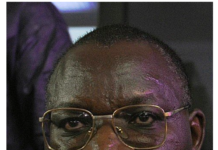By David Himbara

Uganda President Yoweri Kaguta Museveni surprised his admirers and critics alike in his speech celebrating his country’s 58th independence anniversary on Oct. 9, 2020. Museveni announced that his government signed an agreement with neighbouring Democratic Republic of Congo (DRC) to build three road networks that connect the two countries. The joint venture will build 1,200 kilometers of roads from Uganda to the three eastern Congo cities, Goma, Bunia and Beni. This regional collaborative effort, said Museveni, will expand trade between the two countries which already earns Uganda over $530 million a year.
This development marks a remarkable mindset shift. Previously, Uganda had acquired a reputation of making wars and plundering DRC’s natural wealth. Museveni’s mindset shift to making roads for growing legitimate trade between Uganda and DRC is undoubtedly his personal road to Damascus moment.
Uganda’s past military intervention and exploitation of DRC’s natural resources
Since 1996, Uganda was one of several African countries that invaded DRC and occupied parts of that country’s territory. Perhaps, the worst episode of Uganda’s invasion of DRC was the military clash between Ugandan and Rwandan armies that destroyed the third largest Congolese city of Kisangani.
Once allied, Uganda and Rwanda first clashed over the city in 1999, leaving over 200 civilians dead. They fought again in 2000 and then in 2002. These rounds of fighting left over 1,200 Congolese civilians dead and many more wounded, in addition to destroying over 4,000 homes and other facilities essential for the well-being of the population of Kisangani and immediate neighbouring regions. Over 20,000 Congolese were turned into domestic refugees in their own country.
The DRC government subsequently took Uganda to the International Court of Justice for acts of armed aggression and for stealing the country’s natural wealth. The Court concluded, firstly, that Uganda was an occupying power in parts of DRC. Secondly, the Court determined that the troops of Uganda Peoples’ Defence Forces (UPDF) had committed human rights abuses in DRC. Thirdly, the Court concluded that officers and soldiers of the UPDF, including the most high-ranking officers, had plundered DRC’s natural wealth. Uganda was ordered to pay $10 billion reparations to DRC, which has yet to be settled.
Making roads to foster legitimate trade between Uganda and DRC is a welcome development
President Museveni was criticized for his decision to spend Ugandan taxpayers’ money to build roads that connect Uganda and DRC. His critics maintained that Uganda should be improving its own roads instead doing so in a foreign country. Museveni’s answer was that the improved roads in DRC will facilitate and expand trade between the two countries that already earns Uganda over $530 million annually. The larger trade earnings will in turn avail more revenues to build better roads in Uganda.
There are several main reasons why building roads and bridges connecting Uganda and DRC should be welcomed. First, this effort signals a departure from war mentality that has bedevilled this region for far too long. Two decades of wars that have devastated border communities in Uganda and DRC should be the thing of the past. Charting a developmental trajectory as opposed to conflict and war is a good thing.
Secondly, President Museveni ought to be congratulated for thinking outside the box in terms of promoting regional collaboration and integration in a practical way. Grand ambitions of integrating regions in this part of the world tend to remain on the drawing board. Case in point is Rwanda that in 2019 closed its borders to Uganda and Burundi, notwithstanding that they are Rwanda’s partners in the East African Community (EAC).
Thirdly, large infrastructure projects and increased trading lead improved security and social welfare. Surely, opening up the isolated border communities in Uganda and DRC by connecting them to larger markets should improve lives.
Fourthly, the Uganda-DRC collaborative effort appears to be homegrown and financed by the two countries themselves. Very often, such projects emerge from donor talking shops that rise and fail on the availability of external handouts.
Lastly, infrastructure projects likely to succeed in this part of the world are necessarily regional in nature due to lack of economies of scale. Uganda’s leadership knows this. Hence its collaboration with Ethiopia for importing cheaper electricity from that country, or the pipeline that will transport Uganda’s oil through the Tanzania’s seaport of Tanga. The Uganda-DRC roads project is therefore in the footsteps of other regional infrastructure projects that Uganda has been championing.

David Himbara, PhD, is an educator, author, and professor of international development based in Toronto, Canada. He previously headed strategy and policy for the president of Rwanda. Himbara has consulted extensively for governments including South African government and for organizations such the African Development Bank. Himbara taught political economy at universities in South Africa and the US.































































